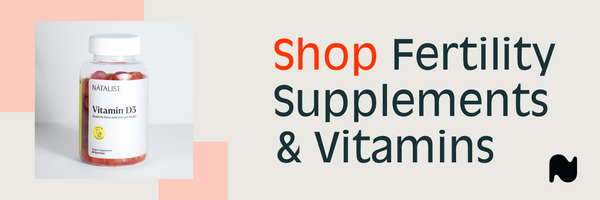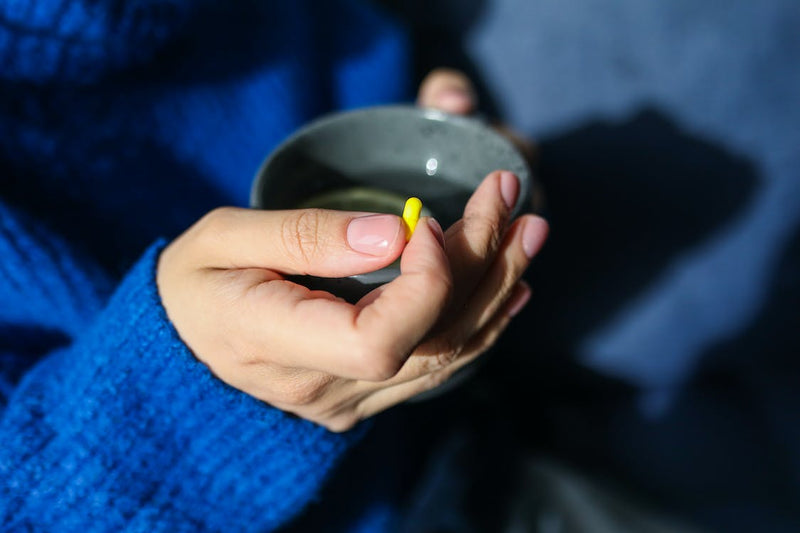Signs and Symptoms of PCOS

There are many signs and symptoms that could indicate polycystic ovary syndrome. Read on to learn about the usual and unusual symptoms of PCOS.
By OBGYN and fertility expert Dr. Kenosha Gleaton
Polycystic ovary syndrome (PCOS) is a common condition that may be to blame for a host of different symptoms. Looking beyond cystic ovaries and increased testosterone, there are likely symptoms you haven’t heard of before.
What is PCOS?
Polycystic ovary syndrome is seen in up to 10% of women of reproductive age, and is considered the most common endocrine disorder in women. PCOS is a syndrome, therefore it’s characterized as a cluster of symptoms. Symptoms are often related to hormonal imbalances and PCOS often interferes with fertility and pregnancy. In order to diagnose PCOS, two out of three specific symptoms must be present— increased male hormones (androgens), polycystic ovaries, and irregular menstrual cycles.
PCOS Advocacy Day is March 2, 2023! Learn how you can contribute.
What are ovarian cysts?
A cyst is a sac or a growth that can be filled with fluid, air, or other substances. Ovarian cysts are typically filled with fluid and are found inside an ovary or on the surface of an ovary. On their own, ovarian cysts are relatively common and usually don’t require any treatment. It’s possible for cysts to rupture which can be serious, so if you’re experiencing any pain, fever, vomiting, or signs of shock, you should seek medical attention right away.
What are the symptoms of PCOS?
There are many symptoms of polycystic ovary syndrome you may notice. Some are relatively common (and experienced by most people living with PCOS) and others are more unusual.
Common symptoms of PCOS
Irregular menstrual cycles
This can include no menstruation, frequently missed periods, or anovulatory periods, which is when menstruation occurs, but ovulation does not. If you’re hoping to conceive soon and have unpredictable cycles, read up on how to track ovulation with irregular periods.
Weight gain
The hormonal imbalances associated with PCOS can lead to increased weight gain, obesity, and trouble losing weight.
Acne
Persistent and severe acne can be a sign of PCOS. In addition, acne may not respond well to usual treatment and may be late-onset.
Fertility trouble
Infertility is defined as the inability to conceive after 6 months or a year of having unprotected sex depending on age. One of the most common causes of infertility in women is PCOS. Fortunately, it’s a treatable condition, and there are steps you can take to increase your chances of getting pregnant with PCOS.
Excess hair growth
Another PCOS symptom caused by an increase in male hormones, is a condition known as hirsutism, and is characterized by excess hair growth on the thighs, chest, stomach, breast, or face.
Did you know that PCOS and endometriosis share some similar symptoms? Read more about the differences between endo and PCOS.
Unusual symptoms of PCOS
There is no uniform experience for living with PCOS, and symptoms will vary from person to person. It is especially common to experience the above symptoms, but there are other signs of PCOS that may fly under the radar, especially if you don’t suspect you have PCOS or another endocrine disorder.
Oily skin
An overproduction of sebum may occur in response to increased androgen levels. This results in oily skin.
Heavy menstrual bleeding
Along with having missed or irregular periods, heavy menstrual bleeding may also be a sign of PCOS. This could include prolonged periods over seven days, or having very heavy bleeding during a typical menstrual period.
Dark, thicker skin
PCOS may result in a condition known as acanthosis nigricans which refers to patches of skin that are thicker, darker, and may be velvety to the touch. This is also a sign of pre-diabetes, a risk factor for many living with PCOS.
Symptoms of high blood sugar
Insulin resistance is seen in up to two-thirds of PCOS patients and risk is increased in obese patients. If insulin resistance isn’t treated or gets worse over time, high blood sugar may result. Symptoms of high blood sugar include increased thirst, blurred vision, headaches, frequent urination, and increased hunger. If you’re concerned about insulin resistance, see a healthcare provider to get testing done.
Treating PCOS symptoms
Unfortunately there is no cure for PCOS at this time, but you can treat the symptoms of PCOS in order to minimize severity.
Lifestyle factors
Weight loss alone has been shown to help reduce androgens and improve insulin sensitivity. Weight loss can be achieved through more physical activity and adopting a lower calorie diet. Weight loss does not need to be extreme to notice symptoms, even a 5% loss resulted in improved symptoms. This includes reduction of excessive hair growth, acne, risk of diabetes, and improved ovulatory function.
Medications and supplements
Hormonal supplementation can improve symptoms like irregular or heavy periods, reduced hair growth, and reduced acne. If you’re hoping to conceive and don’t want to be on a hormonal contraceptive, research shows that insulin-sensitizing medications and supplements can aid in weight loss, lower cholesterol levels, improve ovulation rates, and more. You may also be a candidate for ovulation induction medications when you're ready to conceive. Lastly, Inositol is a supplement that has been shown to improve insulin resistance and ovarian health. Read more about inositol for PCOS.
Find more PCOS resources including a detailed guide on managing PCOS symptoms on the Natalist website.
Key Takeaways
-
PCOS is seen in up to 10% of women and is the most common endocrine disorder in women of reproductive age.
-
PCOS is a syndrome, meaning it is a cluster of symptoms. In order to diagnose PCOS, two out of three criteria must be met.
-
Ovarian cysts are common and shouldn’t be cause for concern, many will go away on their own and don’t require treatment.
-
A few common symptoms of PCOS include weight gain, infertility, irregular periods, and hair growth.
-
A few uncommon symptoms of PCOS are heavy menstrual bleeding, dark and thick skin, and high blood sugar symptoms.
-
PCOS cannot be cured but is treatable using lifestyle modifications, medications, and supplements.
Sources:
https://www.aafp.org/pubs/afp/issues/2016/0715/p106.html
https://pubmed.ncbi.nlm.nih.gov/21562798/
https://www.mayoclinic.org/diseases-conditions/ovarian-cysts/symptoms-causes/syc-20353405
https://www.nichd.nih.gov/health/topics/pcos/conditioninfo/symptoms
https://pubmed.ncbi.nlm.nih.gov/34338572/
https://www.cdc.gov/reproductivehealth/infertility/index.htm
https://www.nichd.nih.gov/health/topics/pcos/conditioninfo/symptoms
https://www.cdc.gov/ncbddd/blooddisorders/women/menorrhagia.html
https://www.nichd.nih.gov/health/topics/pcos/conditioninfo/symptoms
https://www.ncbi.nlm.nih.gov/books/NBK459251/
https://my.clevelandclinic.org/health/diseases/22206-insulin-resistance#management-and-treatment
https://www.nichd.nih.gov/health/topics/pcos/conditioninfo/treatments/relieve#f3
https://www.ncbi.nlm.nih.gov/pmc/articles/PMC8896029/
Reach Out, We're Here
Have questions about your order or products? For the speediest answer, check out our FAQ section. Need something else? Come find us below.
Please keep in mind our regular business hours; Monday-Friday, 9am-5pm CT.
Customer Support
support@natalist.com
Press Inquiries
media@everlyhealth.com
Business & Partnerships
team@natalist.com
Affiliates + Influencers
team@natalist.com
Job Openings
Careers Page





















